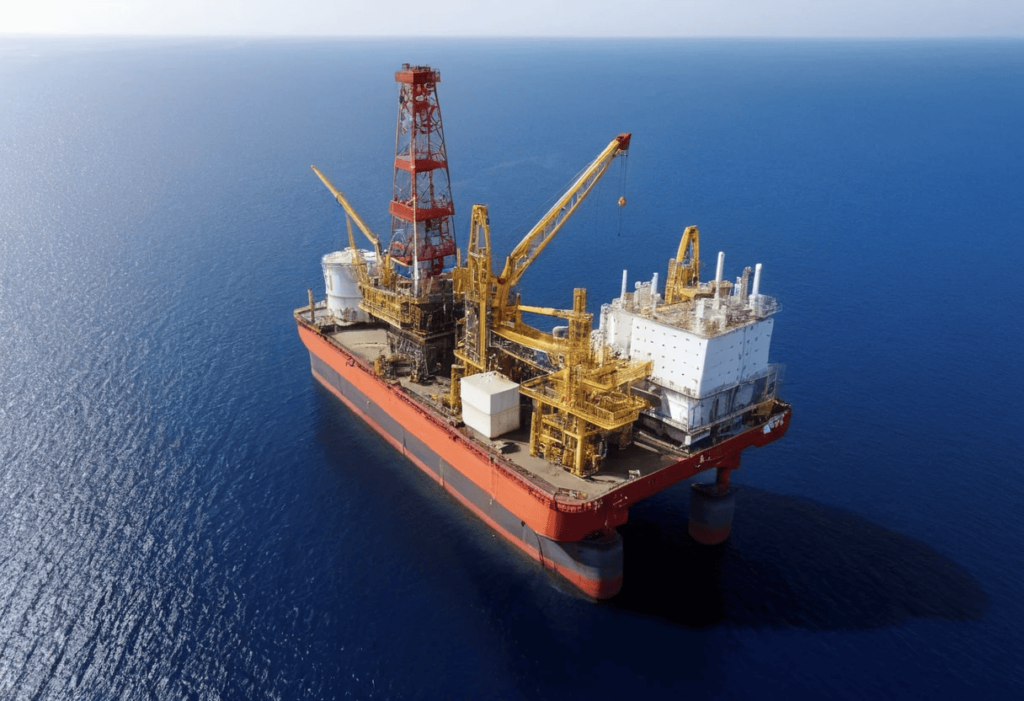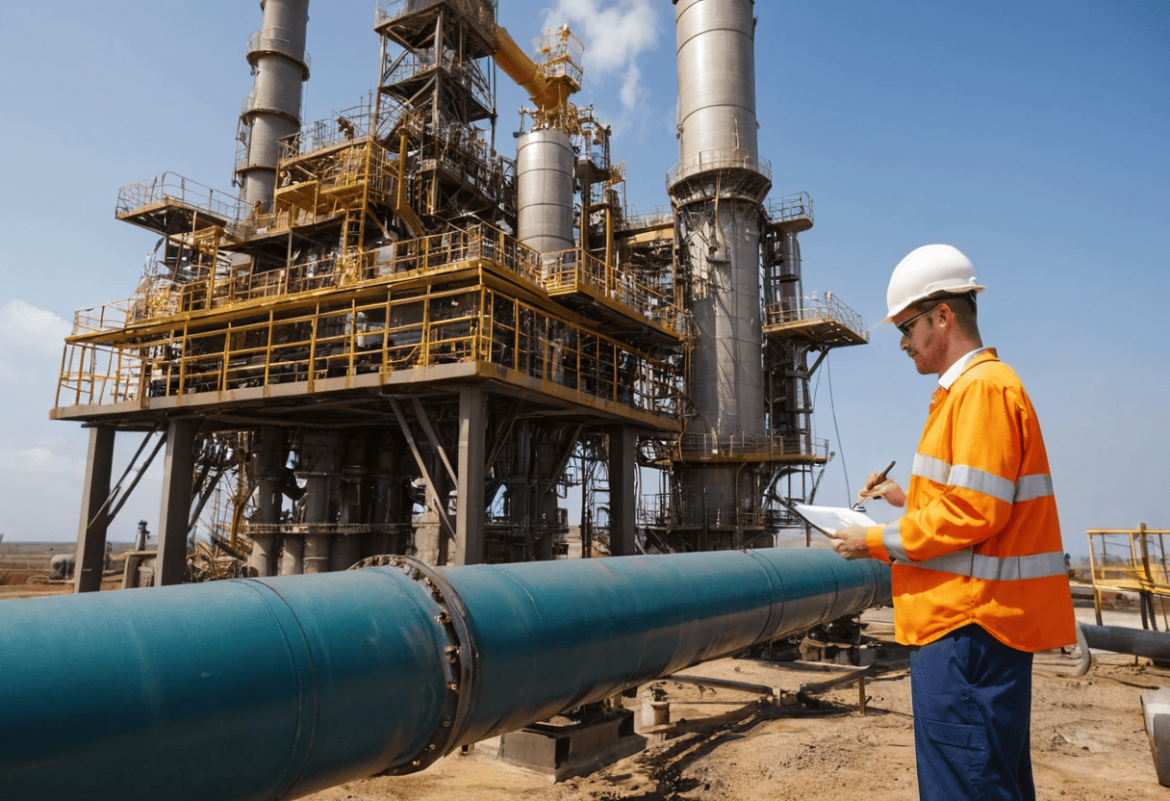Efficient oil and gas procurement is crucial for ensuring smooth operations in the energy sector. From sourcing specialized equipment to managing supplier contracts, effective oil and gas procurement helps companies control costs, minimize delays, and maintain safety standards. Given the industry’s complex supply chain, investing in strategic oil and gas procurement processes is essential for achieving project success and maximizing profitability.
Table of Contents
ToggleKey Challenges in Oil and Gas Procurement
Effective oil and gas procurement is essential for smooth operations, but the industry faces several challenges. Key challenges include:
1. Supplier Reliability
- Unreliable suppliers can cause delays, impacting project timelines.
Solution: Build relationships with trusted vendors and establish backup suppliers.
2. Price Volatility
- Fluctuating oil prices can affect procurement costs.
Solution: Use fixed-price contracts and monitor market trends to manage costs.
3. Logistics and Delivery Delays
- Transporting materials to remote sites or offshore locations can be challenging.
Solution: Plan deliveries in advance and work with experienced logistics providers.
4. Regulatory Compliance
- Oil and gas procurement must meet strict environmental and safety regulations.
Solution: Ensure all suppliers comply with industry standards and legal requirements.
5. Inventory Management
- Overstocking leads to high costs, while shortages delay operations.
Solution: Use inventory tracking tools to maintain optimal stock levels.
6. Supplier Risk Management
- Dependence on a single supplier increases vulnerability.
Solution: Diversify suppliers to reduce supply chain risks.
7. Contract Disputes
- Misunderstandings over terms and conditions can disrupt projects.
Solution: Draft clear, detailed contracts and review them regularly.
Addressing these challenges in oil and gas procurement requires strategic planning, supplier evaluation, and the use of technology to streamline processes and improve efficiency.
Essential Skills for Oil and Gas Procurement Professionals
Success in oil and gas procurement requires a combination of technical knowledge, strategic thinking, and effective communication. Key skills include:
1. Negotiation Skills
- Strong negotiation abilities help secure better prices, favorable contract terms, and improved supplier relationships.
- Professionals must balance cost savings with quality and timely delivery.
2. Cost Management
- Understanding budgeting, cost control, and expense tracking is crucial to minimize procurement costs.
- Effective cost management ensures financial efficiency in projects.
3. Supplier Relationship Management
- Building long-term partnerships with reliable suppliers ensures consistent material flow.
- Strong relationships improve trust, flexibility, and overall service quality.
4. Risk Management
- Identifying potential risks like supplier delays, price fluctuations, or material shortages is vital.
- Professionals must develop contingency plans to mitigate disruptions.
5. Contract Management
- Understanding contract terms, conditions, and legal requirements is key to avoiding disputes.
- Ensuring suppliers meet agreed timelines and quality standards is essential.
6. Technical Knowledge
- Knowledge of oil and gas equipment, materials, and industry standards is critical.
- This expertise helps assess supplier offers and ensure product quality.
7. Communication and Collaboration
- Clear communication with suppliers, internal teams, and stakeholders ensures smooth procurement processes.
- Collaboration enhances teamwork and streamlines decision-making.
8. Data Analysis Skills
- Proficiency in data analysis tools helps track spending, identify trends, and improve procurement strategies.
- Analyzing procurement data ensures better cost control and risk management.
9. Inventory Control
- Managing stock levels to avoid shortages or excess inventory ensures uninterrupted operations.
- Using inventory management systems helps track supplies effectively.
10. Compliance Awareness
- Understanding industry regulations, environmental laws, and safety standards ensures compliant procurement practices.
Mastering these skills is essential for professionals in oil and gas procurement to manage costs, minimize risks, and ensure efficient supply chain operations. Combining technical expertise with strategic thinking helps drive project success and improve overall efficiency.

Best Practices in Oil and Gas Procurement
Implementing best practices in oil and gas procurement is crucial for ensuring efficiency, cost control, and supply chain stability. Key best practices include:
1. Develop a Strategic Procurement Plan
- Outline clear procurement objectives, timelines, and budget limits.
- Align the plan with project needs to avoid delays and overspending.
2. Build Strong Supplier Relationships
- Establish long-term partnerships with reliable suppliers.
- Regularly evaluate supplier performance to ensure quality and timely deliveries.
3. Focus on Cost Optimization
- Use competitive bidding and price benchmarking to secure the best deals.
- Consolidate purchases to reduce costs through volume discounts.
4. Implement Advanced Procurement Tools
- Use procurement software for tracking orders, managing inventory, and analyzing costs.
- Digital tools improve data accuracy, reduce errors, and provide real-time insights.
5. Ensure Compliance with Industry Regulations
- Verify that suppliers meet environmental, safety, and quality standards.
- Regular audits ensure consistent compliance and minimize legal risks.
6. Manage Risks Proactively
- Identify potential risks like supply delays, market volatility, or equipment failure.
- Develop contingency plans to address these risks effectively.
7. Monitor Inventory Efficiently
- Use inventory management systems to track stock levels and material usage.
- Maintain optimal inventory to prevent shortages or excess storage costs.
8. Conduct Supplier Performance Evaluations
- Assess suppliers based on delivery timelines, product quality, and service consistency.
- Replace underperforming vendors to avoid disruptions.
9. Strengthen Communication Channels
- Maintain clear communication between procurement teams, suppliers, and project managers.
- Regular updates ensure better coordination and faster issue resolution.
10. Embrace Sustainability Practices
- Prioritize eco-friendly products and suppliers that follow sustainable practices.
- Sustainable procurement reduces environmental impact and aligns with industry standards.
By following these best practices, oil and gas procurement professionals can improve cost control, enhance supplier performance, and ensure smooth project execution. Strategic planning, technology adoption, and effective communication are key to achieving procurement success.
Read Also : Oil and Gas Procurement Services: A Complete Guide to Efficient Supply Chain Management
The Role of Technology in Oil and Gas Procurement
Technology plays a vital role in improving the efficiency, accuracy, and cost-effectiveness of oil and gas procurement. Key ways technology enhances procurement include:
1. Automated Procurement Processes
- Digital tools automate tasks like purchase order creation, invoice matching, and supplier communication.
- Automation reduces manual errors, speeds up approvals, and improves overall efficiency.
2. Enhanced Supplier Management
- Supplier management platforms enable businesses to track performance, evaluate risks, and maintain clear communication.
- These systems ensure suppliers meet quality, timeline, and compliance requirements.
3. Data Analytics for Better Decision-Making
- Analytics tools provide insights into spending patterns, supplier performance, and inventory levels.
- Data-driven insights help businesses reduce costs, manage risks, and improve sourcing strategies.
4. Inventory Management Systems
- Advanced inventory tools track stock levels, monitor material usage, and forecast demand.
- This prevents overstocking, reduces storage costs, and minimizes supply shortages.
5. E-Procurement Platforms
- Online procurement platforms simplify supplier selection, bidding, and contract management.
- They ensure transparency, improve record-keeping, and enhance cost control.
6. Blockchain for Enhanced Security
- Blockchain technology improves data security, ensuring procurement transactions are transparent and tamper-proof.
- It enhances contract management by providing a secure record of agreements and transactions.
7. Cloud-Based Solutions
- Cloud systems provide real-time access to procurement data, improving collaboration across global teams.
- This enables faster decision-making and ensures procurement teams can respond quickly to changing needs.
8. Internet of Things (IoT)
- IoT devices track equipment performance, inventory levels, and supply chain movements in real-time.
- This technology reduces downtime, optimizes maintenance schedules, and improves logistics.
9. Artificial Intelligence (AI) and Machine Learning
- AI tools predict demand, identify cost-saving opportunities, and improve supplier selection.
- Machine learning algorithms detect procurement risks and recommend solutions.
10. Digital Document Management
- Digital systems streamline contract storage, invoice management, and procurement records.
- This ensures data is secure, organized, and easily accessible.
Integrating technology into oil and gas procurement enhances efficiency, reduces costs, and improves decision-making. By adopting digital solutions, procurement teams can streamline processes, improve supplier relationships, and minimize risks in this demanding industry.
Read Also : Oil and Gas Production Accounting_ A Complete Guide to Financial Accuracy and Compliance
Procurement Strategies for Oil and Gas Projects
Effective oil and gas procurement strategies are essential for managing costs, ensuring timely deliveries, and maintaining operational efficiency. Key strategies include:
1. Strategic Sourcing
- Identify reliable suppliers that meet industry standards.
- Focus on long-term supplier partnerships to improve consistency and pricing.
- Use competitive bidding to secure the best value for materials and services.
2. Category Management
- Group procurement needs into categories like equipment, chemicals, or maintenance services.
- Assign dedicated specialists to manage each category for improved cost control and supplier relationships.
3. Risk-Based Procurement
- Identify potential risks such as supply delays, geopolitical issues, or price fluctuations.
- Develop contingency plans, including alternative suppliers and emergency stock reserves.
4. Supplier Performance Monitoring
- Regularly evaluate suppliers based on delivery times, product quality, and service reliability.
- Use performance data to reward top-performing suppliers and address underperformance.
5. Just-in-Time (JIT) Procurement
- Source materials as needed to minimize storage costs and reduce inventory waste.
- JIT ensures supplies arrive precisely when required, improving cash flow.
6. Local Sourcing Strategies
- Prioritize local suppliers to reduce transportation costs and minimize delivery risks.
- Local sourcing can also improve compliance with regional regulations.
7. Digital Procurement Tools
- Use e-procurement platforms to automate sourcing, bidding, and contract management.
- Digital tools improve data accuracy, streamline communication, and enhance visibility.
8. Sustainable Procurement
- Source eco-friendly materials and prioritize suppliers with sustainable practices.
- Ensuring compliance with environmental standards reduces risks and enhances reputation.
9. Framework Agreements
- Establish long-term contracts with trusted suppliers for frequently used materials.
- Framework agreements simplify repeat orders and improve cost efficiency.
10. Collaboration with Project Teams
- Maintain strong communication between procurement, engineering, and project teams.
- Collaboration ensures procurement aligns with project timelines and technical requirements.
By adopting these oil and gas procurement strategies, companies can improve cost control, enhance supplier relationships, and ensure timely project execution. Strategic planning, risk management, and digital tools are key to achieving successful procurement outcomes in the energy sector.

Training and Certification for Oil and Gas Procurement Professionals
Specialized oil and gas procurement training and certification are essential for professionals seeking to improve skills, advance their careers, and manage procurement processes effectively. Key benefits and recommended certifications include:
1. Why Training in Oil and Gas Procurement is Important
- Enhances knowledge of industry-specific procurement practices.
- Develops skills in supplier management, cost control, and contract negotiation.
- Improves understanding of compliance, safety standards, and environmental regulations.
- Equips professionals with strategies to manage risks and ensure smooth project execution.
2. Key Skills Developed Through Training
✅ Strategic sourcing and supplier evaluation.
✅ Cost reduction techniques and budgeting strategies.
✅ Contract management for oil and gas projects.
✅ Inventory control and demand forecasting.
✅ Risk management and contingency planning.
3. Recommended Certifications for Oil and Gas Procurement Professionals
Earning recognized certifications boosts credibility and career opportunities. Key certifications include:
✅ CIPS (Chartered Institute of Procurement & Supply)
- Covers procurement strategy, supplier management, and cost control.
✅ APICS Certified in Production and Inventory Management (CPIM)
- Focuses on inventory control, planning, and supply chain optimization.
✅ Certified Supply Chain Professional (CSCP)
- Provides expertise in end-to-end supply chain management.
✅ Oil and Gas Supply Chain and Procurement Certificate
- Focuses specifically on procurement strategies for the energy sector.
✅ NEBOSH for Oil and Gas Safety
- Provides essential knowledge of health, safety, and environmental standards in procurement.
4. Benefits of Certification
- Validates your expertise and strengthens your resume.
- Increases job opportunities in oil and gas procurement roles.
- Provides practical knowledge to improve procurement efficiency.
- Helps you manage supplier relationships and procurement risks effectively.
5. Who Should Enroll in Procurement Training?
- Procurement officers and managers in the oil and gas sector.
- Supply chain professionals seeking industry-specific knowledge.
- Project managers responsible for purchasing and supplier coordination.
Pursuing specialized oil and gas procurement training and certification equips professionals with the skills to manage procurement efficiently, reduce costs, and improve project outcomes. Investing in professional development is key to advancing your career in the energy industry.
Why Enroll in Our Oil and Gas Procurement Course?
Enrolling in our Oil and Gas Procurement Course at BMC Training offers you the skills, knowledge, and practical strategies needed to excel in the energy sector. Here’s why our course is the right choice for you:
1. Industry-Focused Curriculum
- Our course covers key topics such as strategic sourcing, supplier management, cost control, and contract negotiation.
- You’ll learn practical skills tailored specifically to the complexities of oil and gas procurement.
2. Expert Instructors
- Our training is delivered by industry professionals with extensive experience in oil and gas procurement.
- Gain insights from real-world case studies, best practices, and hands-on exercises.
3. Practical Skills for Immediate Impact
- Develop practical skills in budgeting, inventory control, and supplier evaluation.
- Learn to manage risks, improve supply chain efficiency, and ensure project timelines are met.
4. Certification for Career Growth
- Earn a recognized certification that validates your expertise in oil and gas procurement.
- Certification enhances your resume and improves job opportunities in procurement, logistics, and supply chain roles.
5. Flexible Learning Options
- Choose from in-person training in key global cities like Dubai, London, and Kuala Lumpur, or join our online sessions for added convenience.
6. Focus on Real-World Applications
- Our course includes practical simulations, case studies, and group exercises to reinforce learning.
- You’ll gain the confidence to apply your skills directly in oil and gas procurement roles.
7. Enhanced Networking Opportunities
- Connect with other procurement professionals, industry experts, and potential business contacts.
- Networking opens doors to career growth and collaboration.
8. Stay Ahead in the Industry
- The oil and gas sector is constantly evolving; our course equips you with updated strategies and tools to stay competitive.
Conclusion
By enrolling in BMC Training’s Oil and Gas Procurement Course, you’ll gain the expertise to manage procurement effectively, reduce costs, and improve project outcomes. Whether you’re an aspiring procurement professional or seeking to advance in your career, our course is your pathway to success in the energy sector.
Boost Your Career with BMC Training: Expert-Led Oil and Gas Procurement Courses!
Read Also : Get Special Oil and Gas Courses From BMC
FAQs
1. What is oil and gas procurement?
Oil and gas procurement refers to the process of sourcing, purchasing, and managing materials, equipment, and services required for oil and gas operations.
2. What are the 7 stages of procurement?
The 7 stages of procurement are:
- Identifying Needs
- Supplier Research
- Supplier Evaluation and Selection
- Purchase Order Creation
- Contract Negotiation and Agreement
- Delivery and Inspection
- Payment and Record Keeping
3. What are the three types of procurement?
The three types of procurement are:
- Direct Procurement – Materials directly involved in production.
- Indirect Procurement – Goods and services for business operations.
- Services Procurement – Outsourced labor or consulting services.
4. What are the challenges of oil and gas procurement?
Key challenges include:
- Supplier delays
- Price volatility
- Logistics issues
- Regulatory compliance
- Inventory mismanagement
5. What is pipeline in procurement?
In procurement, a pipeline refers to the tracking process that monitors purchase requests, supplier negotiations, and order progress until delivery.
6. What is strategic sourcing in the oil and gas industry?
Strategic sourcing involves identifying and partnering with suppliers that offer the best value, ensuring cost control, risk reduction, and efficient supply chain management.


